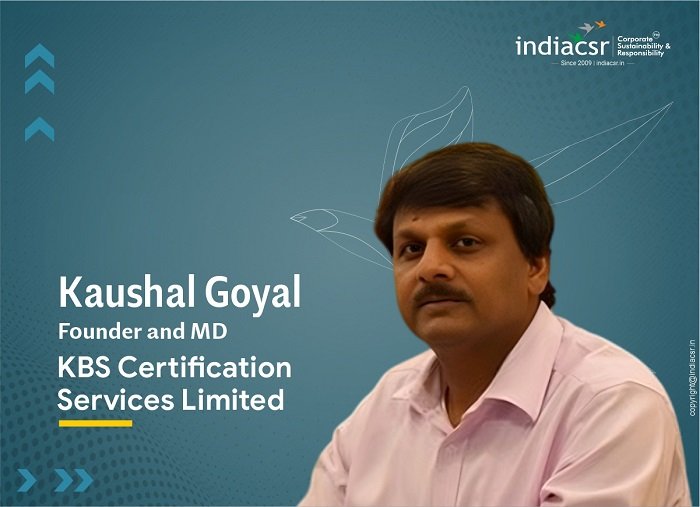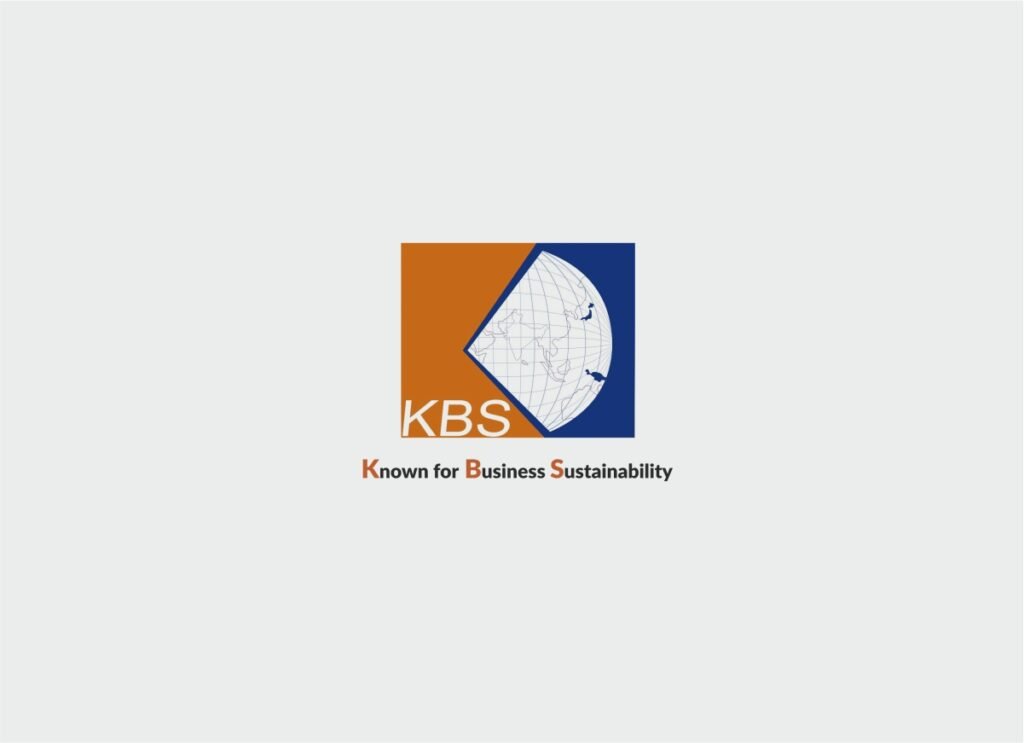Kaushal Goyal explains how Article 6 of the Paris Agreement drives global climate action by leveraging carbon markets and cooperation.
Kaushal Goyal, Founder and Managing Director, KBS Certification Services Limited has surged on an untravelled road, making his own path, setting milestones. His organisation was the first in the Indian Subcontinent to be accredited by UNFCCC as a Designated Operational Entity. There has been no looking back ever since. Till date KBS has validated and verified over 2500 Carbon Projects in more than 40 countries across the globe. He is credited for creating a Global Pedestal where Indian Validation and Verification Bodies are respected in the Carbon Value Chain.
Recently he was felicitated with the India Special Jury Samman by the Carbon Markets Association of India in acknowledgement of his Pathbreaking Accomplishment bringing fame to India.
On a separate note, India is galvanizing the Global South in combating Climate Change and is taking expeditious steps to get ready for Article 6.2 and Article 6.4 Mechanisms of the Paris Agreement. In view of this our Editor-in-Chief, Rusen Kumar caught up with Kaushal Goyal to take his opinion on the strides India is making in promoting technologies under Article 6 of the Paris Agreement, from a Validation and Verification Body’s perspective. The transcript of the tête-à-tête is hereby being brought out for our readers.
Rusen Kumar: What are your opening thoughts about Article 6 of the Paris Agreement?
Kaushal Goyal: Article 6 of the Paris Agreement stipulates how countries can pursue voluntary cooperation to reach their climate targets through market and non-market approaches. It enables international cooperation to tackle the menace of climate change and unlock financial support for developing countries. This means that, under Article 6, countries will be able to transfer carbon credits earned from the reduction of greenhouse gas emissions to help one or more countries meet their climate targets. Article 6.2 facilitates bilateral or multilateral trading of Internationally Transferred Mitigation Outcomes (ITMOs) between countries. Article 6.4 establishes a centralised, UN-supervised carbon market to validate and standardise carbon credit projects, ensuring transparency and environmental integrity.
ALSO READ | BRSR is a Testament to India’s Sustainability Leadership
While Articles 6.2 and 6.4 are market-based approaches, Article 6.8 is a non-market-based approach. Just because Article 6.8 is a non-market-based approach does not make it any less important.
Here I would like to unequivocally state that the path to the overall success of Article 6 of the Paris Agreement originates from Article 6.8 which underpins the importance of integrated, holistic and balanced non-market approaches being available to Parties to assist in the implementation of their nationally determined contributions, in the context of sustainable development and poverty eradication, in a coordinated and effective manner, including through, mitigation, adaptation, finance, technology transfer and capacity building. Stakeholders across the globe often tend to underplay Article 6.8 in comparison to Articles 6.2 and Article 6.4, which according to me is not advisable. If all stakeholders understand the true importance of Article 6.8, the success of Articles 6.2 and 6.4 will become a lot surer, structured and streamlined. This holds true for all countries.
Rusen Kumar: The Government of India has published the list of activities that will be permitted under the ambit of Articles 6.2 and 6.4 of the Paris Agreement. What are your quick thoughts about the same and how could India use them to its benefit?
Kaushal Goyal: Out of the Projects/ Activities that India’s National Designated Authority for the Implementation of the Paris Agreement (NDAIAPA) has permitted for Articles 6.2 or 6.4, all except Carbon Capture Utilization and Storage are Carbon Avoidance Activities.
Well, India’s stint with Article 6 will be truly successful when all the activities permitted grow up at scale from the current nascent stage. All Stakeholders must provide support to the Project Developers in all possible and plausible ways to ensure that finance, technology transfer and good practices from across the world together aid in scaling these activities up with time in the holistic interest of our country.
Let’s try to understand this better with the help of the example of contemporary mobility solutions. Emerging mobility solutions like fuel cells are one of the activities that have been approved under Articles 6.2 and 6.4. This activity has the potential to revolutionize Clean Transportation.
Fuel cells generate electricity through a chemical reaction between hydrogen and oxygen, emitting only water vapor and heat as byproducts. This makes them an excellent choice for reducing the environmental impact of transportation. In modern transportation, fuel cells are being integrated into a wide range of electric vehicles, from commercial buses and trucks to passenger cars and even marine vessels.
In a vast country like ours you can only imagine how much fossil fuel is used to cater to the transportation requirements of the population. Conventional Cars and Transportation System are a big source of our carbon emissions across the country.
Ramifications do not restrict just to the environment but also spill over as an economic burden as we import crude oil from other nations by paying Foreign Exchange. Thus, if we scale up Emerging Mobility Solutions like Fuel Cells for Transportation then not only will we be able to reduce emissions but will also give impetus to Make In India thereby giving massive push to Aatmanirbhar Bharat simultaneously narrowing our Current Account Deficit. The kind of employment opportunities this prospect will generate will be an added advantage too.
In fact, special provisions have been made in Budget 2025-26 to give a boost to Electric Vehicles. Government of India, in a bid to make EVs affordable, waived customs duties on 35 capital goods necessary for making the battery of an EV! This is going to lower production costs, and the trickle-down effect should see EVs becoming more affordable too.
Private Sector can participate in a big way to bring this activity to scale. Some by manufacturing Electric Vehicles while others supporting associated infrastructure like Charging Stations in a big way.
Rusen Kumar: As you said, all but one of the activities for Articles 6.2 and 6.4 permitted by Government of India fall under carbon avoidance category. Would you like to share any tips for Climate Action enthusiasts who are planning to venture into these activities?
Kaushal Goyal: Purely from the perspective of a Designated Operation Entity/ Validation and Verification Body, I would like to caution the prospective Project Developers of the Activities permitted under Articles 6.2 and 6.4. One will have to understand that Carbon avoidance credits inherently are based on the emissions that might have existed had a project not been funded. Because it is impossible to observe what might have happened without project funding, carbon avoidance estimates are determined by considering what emissions might have been produced in the absence of the Project Activity. Historic data, contextual information and statistical models must therefore be carefully used to create a presumed baseline that represents what would have happened in the absence of the project. This baseline will also keep changing during the life of the project.
Since the baseline is not accurately observed, there is always an uncertainty in how many carbon credits avoided emissions projects should produce and if the baseline is not set accurately, a project can tend to over-credit.
While the lack of a directly measured baseline means avoidance credits will always have some degree of uncertainty, high-quality avoidance credits are able to present compelling evidence to support their baselines and this can greatly reduce uncertainty. New datasets, statistical techniques and methodologies can provide opportunities for developing avoidance credits with more certainty.
Thus, the Project Developers/ Proponents will have to evolvingly work hard in establishing newer methodologies to justify their projects. This holds true for all the Avoidance Activities permitted by Government of India under Article 6.2 and Article 6.4. All the permitted Activities listed out by Government of India are extremely capital-intensive till their deployment reaches a scale.
Rusen Kumar: This brings to the fore the very pertinent point of unfulfilled promises by the Global North in terms of Climate Finance for the Global South. Readers would like to hear your point of view.
Kaushal Goyal: We have all seen what has been happening to International Climate Financing promises since 2015. When the 100 billion Dollar Promise could not be kept, any hopes to see the new 300 billion Dollar getting through will be nothing short of wishful thinking. Moreover, US again pulling out of the Paris Agreement will further stymie the International Climate Funding.
Countries from the Global South will have to stop ranting about this rather obvious shortfall and spruce up their own efforts to give a Definitive Direction to their journey from Climate Ambition to Climate Action and Resilience.
Critical to realise India’s success in terms of setting up Article 6.2 and 6.4 activities will be availability of financing by the Lending Institutions under ease of doing business upholding the tenets of Aatmanirbhar Bharat.
Rusen Kumar: Is India on track to achieve its Nationally Determined Contributions (NDCs)? Is our Climate Ambition aligned with our NDCs?
Kaushal Goyal: As per India’s 4th Biennial Update Report (BUR-4) submitted to the UNFCCC in December 2024, between 2005 and 2020, India’s emission intensity of Gross Domestic Product (GDP) reduced by 36% as against the NDC target of 45% to be achieved by 2030. Insofar as the achievement of target under NDC related to the share of non-fossil fuel-based sources is concerned, the share in India’s total installed electricity generation capacity was 47.10% in December 2024 as against the target of 50% to be achieved by 2030. As compared to the base year of 2005, India has already reached 2.29 billion tonnes of additional carbon sink as against the target of 2.5 to 3.0 billion tonnes by 2030 through additional forest and tree cover. So, India is well ahead the curve in achieving NDCs.
Rusen Ji, here I would like to emphasize that Government of India’s stance on Common But Differentiated Responsibilities and Respective Capabilities (CBDR-RC) considering the growth trajectory we find ourselves in to become a 5 trillion dollar economy is well though approach. Our Climate Ambition and Action / our NDCs are perfectly aligned keeping in mind these Common but Differentiated Responsibilities and Respective Capabilities (CBDR-RC).
Rusen Kumar: Any final thoughts or comments before we end this interview?
Kaushal Goyal: It is very important to note at this juncture that India’s Long-Term Low Emission Development Strategy (LT-LEDS) targets seven key transitions, which includes low-carbon electricity systems, integrated low-carbon transport systems, innovative low-emission industrial systems and CO2 removal and related engineering solutions among others. The permitted activities under Articles 6.2 and 6.4 support these transitions by introducing advanced technologies and innovative solutions. These activities contribute to India’s LT-LEDS by enabling India to undertake projects that avoid or remove emissions, thus supporting its low-carbon development transition. India should go all guns blazing operationalising the permitted activities for Article 6.2 and Article 6.4 on its soil.
(Copyright@IndiaCSR)








